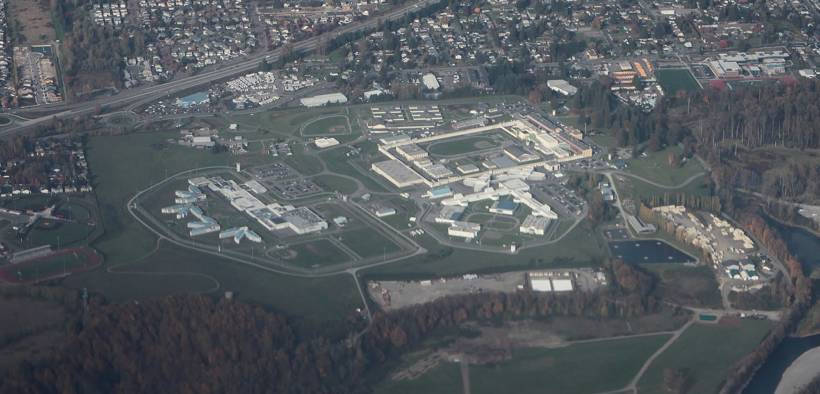American Inmates Fear for Lives in Jails Unprepared to Handle Coronavirus

“This epidemic, pandemic, has laid bare the issues of disparity that have been so embedded in our country since its founding.”
With millions of Americans ordered to socially distance and stay at home to prevent the lethal spread of the coronavirus, the United States prison system has left millions of people at a higher risk of contracting the disease.
New York City’s jails were the first to make national news for having a large coronavirus cluster, but now the trend has spread nationwide. The New York Times reported Chicago’s Cook County Jail is responsible for the largest cluster of coronavirus cases with 238 inmates and 115 staff members testing positive.
53-year-old Michael Tyson was the first inmate from Rikers Island in New York to die of coronavirus. Tyson was jailed for a technical parole violation, meaning he missed a parole appointment. According to New York’s Board of Correction, 287 inmates and 441 staff members have tested positive for coronavirus as of April 8.
Civil rights advocates and public officials had long been sounding the alarm about the acute risk prisoners face due to overcrowded jails.
“Jails in this country are petri dishes. They’re the government equivalent of nursing homes or cruise ships,” said Cook County Board president Toni Preckwinkle a week ago.
Unrest
At the end of March, the Federal Bureau of Prisons announced all federal inmates will be on an effective lockdown for 14 days.
But, with stories of coronavirus spread in prisons across the country, inmates are beginning to fight back.
In Monroe, Washington, hundreds of inmates at Monroe Correctional Complex threatened to set fires and take officers hostage due to concern about the facility’s lackluster response to the threat of coronavirus. Six inmates at the facility have tested positive, and inmates were unhappy with the prison’s response which included offering inmates McDonald’s.
The Marshall Project has reported several instances of unrest in American prisons including fires in Texas prisons. 12 inmates broke out of a Washington prison due to fear of coronavirus, and Texas immigration detainees were pepper-sprayed after rioting to demand their release.
Stories of prions rioting and unrest can be found all over the United States, from federal to state to ICE detention centers.
Some prisoners have been released, but America’s 2.3 million prison population is still largely behind bars in facilities that lack the proper resources to prevent the spread of a deadly virus.
New York Governor Andrew Cuomo said during a Friday press conference, “but reducing the prison population—we don’t have any way to do that right now.”
Many have called on Cuomo, other governors, and the federal government to do much more in response to the growing emergency in prisons.
Chief Physician of Rikers Island Ross MacDonald responded on Twitter to letter from five New York district attorneys and said, “the only part of the letter I can speak directly to is their failure to appreciate the public health disaster unfolding before our eyes.”
Vulnerable Populations Left Behind
Along with the prison population, other Americans including the homeless, immigrants, and people living in poverty are being fundamentally left behind.
Others are pointing to the racial disparity in coronavirus victims with black Americans and other minority groups more likely to die to coronavirus than white Americans.
“I think what we’re looking at here is a systematic issue of disparity, that we have known has persisted in the African-American community for centuries,” Alanah Odoms Hebert, executive director of the ACLU of Louisiana, said to Democracy Now. “And this epidemic, pandemic, has laid bare the issues of disparity that have been so embedded in our country since its founding. Black and brown communities do not have the protection they need.”
Black people account for 70% of coronavirus deaths in Louisiana although they only make up 32% of the state’s population. Louisiana is one of the hardest-hit states in the nation.
The ACLU is suing an Oakdale, Louisiana prison after five inmates there died from coronavirus.
When asked about the racial disparity in coronavirus deaths, Vice President Mike Pence suggested black families were not abiding by social distancing measures.
“I’ll just say from my heart to all of our African-American family members, now more than ever, practice the guidelines, look after those most vulnerable people that have underlying serious health conditions,” said Pence during Wednesday’s press conference.















